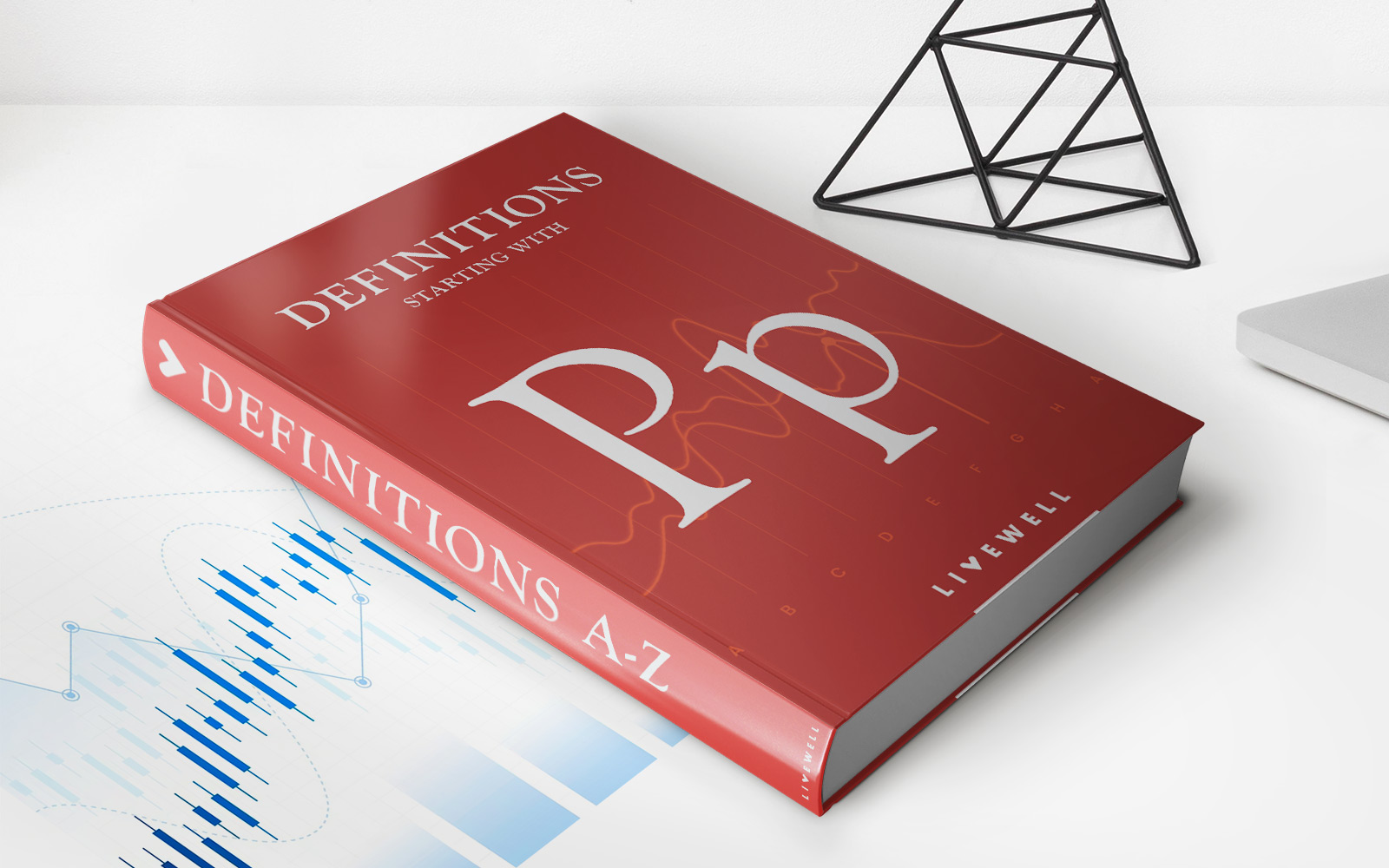

Finance
How A CPA Can Help A Small Business
Published: November 25, 2023
A CPA can provide essential financial expertise and guidance to small businesses, ensuring they make smart financial decisions and optimize their overall financial health.
(Many of the links in this article redirect to a specific reviewed product. Your purchase of these products through affiliate links helps to generate commission for LiveWell, at no extra cost. Learn more)
Table of Contents
Introduction
Running a small business can be a challenging endeavor, especially when it comes to managing the financial aspects of your company. From tax obligations to budgeting and forecasting, there are numerous financial tasks that require attention and expertise. This is where a Certified Public Accountant (CPA) can be a valuable asset to your small business.
A CPA is a finance professional who has obtained a license to provide accounting services to the public. They have extensive knowledge and expertise in various areas of finance, including tax planning, financial analysis, bookkeeping, and compliance. By hiring a CPA, you can tap into their specialized skills and experience to effectively manage your small business’s financial affairs.
In this article, we will explore the benefits of hiring a CPA for your small business and how they can help you navigate the complex financial landscape. Whether you are just starting out or looking to grow your existing business, a CPA can be instrumental in ensuring that your financial records are accurate, your taxes are filed correctly, and your financial decisions are strategic and sound.
So, let’s dive in and discover how a CPA can make a significant difference in the success of your small business.
Benefits of Hiring a CPA for a Small Business
When it comes to running a small business, every decision you make has an impact on your financial health. This is where a Certified Public Accountant (CPA) can provide immense value. Here are some key benefits of hiring a CPA for your small business:
- Expertise in Tax Planning: As a small business owner, navigating the complex world of taxes can be daunting. A CPA can help you understand your tax obligations, identify potential deductions and credits, and devise strategies to minimize your tax liability. They stay up-to-date with the latest tax laws and regulations, ensuring that your business remains compliant.
- Financial Analysis and Decision-making: A CPA can provide in-depth financial analysis that goes beyond basic bookkeeping. They can help you interpret financial statements, identify financial trends, and make informed decisions based on data. This analysis can be crucial for budgeting, forecasting, and strategic planning, allowing you to make sound financial decisions for your small business.
- Accurate Bookkeeping and Record-keeping: Keeping track of your financial transactions is vital for the success of your small business. A CPA can assist in setting up proper bookkeeping systems, ensuring that your records are accurate and up-to-date. They can also help you maintain an organized system for storing financial documents, making it easier during tax season or audits.
- Budgeting and Forecasting: A CPA can help you create a realistic budget and cash flow forecast for your small business. By analyzing your financial data, they can provide insights into your revenue and expenses, helping you make informed decisions about expenditures, investments, and savings. This can contribute to the financial stability and growth of your business.
- Audit Preparation and Compliance: If your small business gets audited by the IRS or other regulatory bodies, having a CPA on your side can be invaluable. They can assist in preparing necessary documentation, ensuring compliance with audit requirements, and representing your business in discussions with auditors. Their expertise can help alleviate the stress and complexities associated with audits.
- Business Growth and Expansion Strategies: As your small business grows, a CPA can provide valuable insights and guidance. They can help you assess the financial viability of expansion plans, analyze market trends, and develop strategies to optimize profitability. Their expertise can be instrumental in helping your business thrive and reach its full potential.
Overall, hiring a CPA for your small business offers a range of benefits that can improve your financial management, reduce tax liabilities, and facilitate informed decision-making. With their expertise and knowledge, a CPA can become a trusted financial advisor and partner in the growth and success of your small business.
Understanding Tax Obligations
One of the most crucial aspects of running a small business is understanding and fulfilling your tax obligations. Taxes can be complex and overwhelming, but a Certified Public Accountant (CPA) can provide invaluable assistance in this area. Here’s how a CPA can help you navigate your tax obligations:
Tax Planning and Strategy: A CPA can develop a comprehensive tax strategy that maximizes deductions and credits, minimizes tax liability, and ensures compliance with changing tax laws. They analyze your business structure, assess your financial situation, and identify applicable tax incentives or exemptions specific to your industry. With their expertise, they can help you make strategic decisions to optimize your tax position.
Filing Taxes: A CPA can prepare and file various tax forms and returns on your behalf, ensuring accuracy and compliance. They stay updated with the latest tax regulations, ensuring that your business remains in line with legal requirements. From income taxes to sales taxes and payroll taxes, a CPA can handle all aspects of filing your tax obligations.
Tax Deadlines and Extensions: Missing tax deadlines can result in penalties and unnecessary stress. A CPA can keep track of important tax due dates and ensure that your tax returns are submitted on time. If needed, they can also help you apply for extensions and guide you through the process to avoid any penalties.
Audit Support: If your small business gets audited by the IRS or state tax authorities, a CPA can be your advocate and represent your business during the audit. They can assist in preparing the necessary documents, answering inquiries, and negotiating on your behalf. Having a CPA by your side can help alleviate the stress and ensure that you navigate the audit process smoothly.
Tax Compliance and Risk Mitigation: A CPA helps you maintain tax compliance by keeping your financial records organized and accurate. They can implement sound internal controls and processes to minimize the risk of tax errors or irregularities. By reducing the chances of non-compliance, a CPA can help you avoid penalties and legal issues that can harm your business reputation and finances.
Changes in Tax Laws: Tax laws undergo continuous changes, and keeping up with them can be challenging. However, a CPA stays updated with the latest tax regulations and reforms. They can help you understand how these changes impact your small business and advise you on the necessary adjustments to remain compliant.
By enlisting the services of a CPA, you can ensure that your small business meets its tax obligations while minimizing tax liability and maximizing deductions. Their expertise in tax planning and compliance not only saves you time and effort but also provides peace of mind knowing that your taxes are in capable hands.
Financial Planning and Analysis
Financial planning and analysis are critical components of managing a small business effectively. It involves assessing your current financial situation, setting financial goals, developing strategies to achieve those goals, and monitoring your progress. A Certified Public Accountant (CPA) can bring expertise in financial planning and analysis to help you make informed decisions and optimize your business’s financial performance. Here’s how a CPA can assist you:
Assessing Financial Health: A CPA can analyze your financial statements, including your balance sheet, income statement, and cash flow statement, to assess the financial health of your business. They’ll look for key metrics such as profitability, liquidity, and solvency to understand how your business is performing. By interpreting these financial indicators, they can provide insights into areas of improvement and identify potential risks.
Budgeting and Forecasting: Developing a realistic budget and forecasting future financial performance are essential for managing your small business. A CPA can help you create a comprehensive budget that considers revenue projections, expenses, and cash flow needs. They will use historical data and industry trends to make accurate revenue and expense forecasts, allowing you to plan for optimal resource allocation and business growth.
Financial Decision-making: From investment evaluations to pricing strategies and cost control measures, a CPA can provide financial guidance that supports sound decision-making. With their analytical skills and understanding of financial data, they can help you evaluate various options, assess the potential risks and returns, and recommend the best course of action to achieve your business goals.
Profitability Analysis: Understanding your business’s profitability is crucial for long-term success. A CPA can conduct a thorough profitability analysis to identify the most profitable products, services, or customer segments. By analyzing your revenue streams and cost structure, they can help you optimize pricing, reduce expenses, and maximize your profitability.
Financial Modeling and Scenario Planning: A CPA can create financial models and perform scenario planning to assess the impact of different variables on your business’s financial performance. This can help you anticipate potential outcomes and make informed decisions. For example, they can help you evaluate the financial implications of expanding your product line or entering new markets.
Trend Analysis and Benchmarking: By comparing your business’s financial performance to industry benchmarks and analyzing trends over time, a CPA can identify areas of improvement and highlight strengths and weaknesses. This information can guide you in making strategic adjustments to stay competitive and improve your profitability.
Financial Goal Setting and Monitoring: A CPA can assist in setting financial goals for your small business and develop key performance indicators (KPIs) to measure progress. They will regularly monitor and review your financial performance against these goals, providing valuable insights and recommendations to keep you on track.
By leveraging the expertise of a CPA in financial planning and analysis, you can gain a comprehensive understanding of your business’s financial health, make informed decisions, and steer your small business towards sustainable growth and profitability. Their insights and strategic recommendations can prove invaluable in achieving your financial goals.
Bookkeeping and Record-keeping
Accurate bookkeeping and record-keeping are vital for the success and growth of any small business. Keeping track of financial transactions, receipts, and invoices ensures that your financial records are up-to-date and organized. However, this can be a time-consuming and complex task for business owners. This is where a Certified Public Accountant (CPA) can play a crucial role. Let’s delve into how a CPA can assist you with bookkeeping and record-keeping:
Establishing a System: A CPA can help you set up an efficient bookkeeping system tailored to your business needs. They will determine the appropriate accounting software, charts of accounts, and financial reporting formats. By implementing a structured system from the start, you can maintain organized financial records that are easier to manage.
Recording Transactions: A CPA can handle the day-to-day recording of financial transactions, including sales, purchases, expenses, and payments. They will ensure that all transactions are accurately classified and entered into the accounting system, maintaining the integrity of your financial records.
Bank Reconciliation: Reconciling your bank accounts on a regular basis is essential for detecting errors or discrepancies. A CPA can perform bank reconciliations, ensuring that your records align with your bank statements. This process helps identify any missing or fraudulent transactions, maintaining the accuracy of your financial data.
Accounts Payable and Accounts Receivable: Managing your accounts payable (AP) and accounts receivable (AR) can be time-consuming. A CPA can help you stay on top of your payables, ensuring that bills are paid on time and that you maintain healthy relationships with your vendors. They can also manage your receivables, tracking customer payments and following up on outstanding invoices.
Financial Statement Preparation: As part of their bookkeeping services, a CPA can prepare accurate and timely financial statements, including the income statement, balance sheet, and statement of cash flows. These statements provide valuable insights into your business’s financial performance and help you make informed decisions.
Tax Documentation: A CPA can manage your tax-related documents, ensuring that you maintain proper documentation to support your tax deductions and credits. They will organize and store receipts, invoices, and other documentation in a manner that simplifies tax preparation and minimizes the risk of losing important records.
Compliance with Regulations: Keeping up with various financial regulations and reporting requirements can be challenging. A CPA stays updated with the changes in accounting standards and tax laws, ensuring that your bookkeeping practices remain compliant. They can assist in the preparation of financial reports required by regulatory bodies or lenders.
Financial Analysis using Accurate Data: By maintaining accurate and up-to-date financial records, a CPA can provide you with meaningful financial insights. They can analyze your financial data to identify trends, measure key performance indicators, and assess the financial health of your business. This analysis can be instrumental in making strategic decisions and driving growth.
With their expertise in bookkeeping and record-keeping, a CPA can take the burden off your shoulders, allowing you to focus on running your small business. By maintaining accurate financial records, you not only have a clear picture of your business’s financial health but also fulfill your reporting obligations and enhance the trust of stakeholders.
Budgeting and Forecasting
Effective budgeting and forecasting are essential for the long-term success and financial stability of a small business. They provide a roadmap for managing expenses, allocating resources, and achieving financial goals. However, creating an accurate and realistic budget can be challenging without the expertise of a Certified Public Accountant (CPA). Let’s explore how a CPA can assist you with budgeting and forecasting:
Capturing Revenue and Expenses: A CPA can help you identify all sources of revenue and categorize expenses in your budget. They will review historical financial data, analyze industry benchmarks, and consider market trends to ensure that your revenue projections and expense estimates are comprehensive and realistic.
Expense Control and Cost Analysis: A CPA can review your expense structure and identify areas where cost savings can be achieved without compromising the quality or efficiency of your operations. They can perform cost analyses to help you make informed decisions about cost control measures, such as renegotiating contracts, optimizing inventory management, or finding more cost-effective suppliers.
Capital Expenditure Planning: If your business requires significant investments in assets or equipment, a CPA can assist in planning and budgeting for these capital expenditures. They can analyze the financial impact of these investments on your cash flow and profitability, helping you make sound decisions about when and how to finance these purchases.
Cash Flow Management: A CPA can help you forecast your cash flows, ensuring that you have enough liquidity to cover your operational expenses, debt obligations, and unforeseen emergencies. By monitoring your cash inflows and outflows, they can identify potential cash flow gaps and work with you to develop strategies for managing your working capital effectively.
Sensitivity and Scenario Analysis: A CPA can utilize financial models to conduct sensitivity and scenario analyses, allowing you to evaluate the impact of various assumptions and external factors on your budget and financial performance. This analysis helps you assess the risks and uncertainties associated with your financial forecasts and make contingency plans to mitigate potential challenges.
Monitoring and Variance Analysis: A CPA can regularly monitor your actual financial performance against your budget and provide you with variance analysis. By comparing your actual results to your budgeted figures, they can identify areas of deviation and work with you to understand their causes. This analysis enables you to make adjustments to your operations or financial strategies to stay on track.
Financial Goal Setting: Based on your business objectives, a CPA can assist in setting realistic financial goals and key performance indicators (KPIs). They can translate these goals into actionable budget targets and work with you to design strategies to achieve them. By monitoring your progress against these goals, they can provide insights into your business’s financial performance and help you make informed decisions.
Strategic Decision-making: A CPA can provide financial insights and analysis that support strategic decision-making processes. Whether you are considering expanding your product line, entering new markets, or making acquisitions, a CPA can perform financial evaluations, analyze the potential risks and rewards, and offer guidance to help you make sound decisions that align with your financial goals.
By leveraging the expertise of a CPA in budgeting and forecasting, you can enhance your financial planning capabilities and improve your business’s financial performance. Through accurate budgeting and thoughtful forecasting, you can navigate uncertainties, make informed decisions, and position your small business for long-term success.
Audit Preparation and Compliance
As a small business owner, the prospect of an audit by the Internal Revenue Service (IRS) or other regulatory bodies can be daunting. However, with the assistance of a Certified Public Accountant (CPA), you can navigate the audit process smoothly and ensure compliance with regulatory requirements. Here’s how a CPA can help you with audit preparation and compliance:
Organizing and Reviewing Financial Records: A CPA can assist in preparing your financial records for an audit. They will review your financial statements, bank statements, receipts, invoices, and other supporting documents to ensure accuracy and compliance with accounting principles. By organizing your records in a systematic manner, they can save you time and stress during the audit process.
Auditor Communication and Representation: When your small business gets audited, a CPA can act as a liaison between you and the auditors. They can communicate with the auditors on your behalf, addressing any inquiries or requests for additional information. Having a CPA by your side ensures that your interests are protected, and that you have the support of a knowledgeable professional during discussions with the auditors.
Preparing Audit Documentation: A CPA can assist in gathering and preparing the necessary documentation for the audit. They will ensure that all required financial documents, tax returns, and supporting schedules are readily accessible and organized. This preparation minimizes the risk of missing or misplacing important documents during the audit, which could lead to delays or issues with the audit process.
Compliance with Audit Requirements: Regulatory audits typically have specific requirements and standards that must be met. A CPA is well-versed in these requirements and can ensure your business remains compliant. They can help you understand the audit process, assist in meeting deadlines, and ensure that your financial records adhere to the necessary standards.
Internal Controls and Risk Mitigation: A CPA can evaluate your internal controls and provide recommendations to strengthen them, minimizing the risk of non-compliance or fraud. They can help you implement processes that ensure accurate financial reporting, safeguard assets, and protect against potential risks. This not only enhances your compliance but also improves the overall financial health of your small business.
Audit Remediation: In the unfortunate event that issues or discrepancies are identified during the audit, a CPA can assist in addressing the findings and implementing remediation plans. They can work with you to develop action plans to correct any deficiencies and ensure that your business is in compliance moving forward.
Staying Updated on Regulatory Changes: Laws and regulations related to audits and compliance can change frequently. A CPA stays updated with the latest regulatory requirements and can ensure that your business remains informed and compliant with any new regulations that may affect your industry.
By engaging a CPA for audit preparation and compliance, you can have peace of mind knowing that your financial records are in order and that you have a knowledgeable professional to guide you through the audit process. Their expertise and support can help you navigate the complexities of audits and ensure that your small business remains compliant with all regulatory requirements.
Business Growth and Expansion Strategies
Every small business owner aspires to see their company grow and expand. However, navigating the path to growth requires careful planning and strategic decision-making. A Certified Public Accountant (CPA) can provide valuable insights and guidance to help you develop effective growth and expansion strategies. Let’s explore how a CPA can support your business in achieving its growth objectives:
Financial Analysis and Evaluation: A CPA can conduct a comprehensive financial analysis of your business, including an assessment of your profitability, cash flow, and financial health. By identifying strengths and weaknesses, they can provide valuable insights into your business’s financial performance and determine areas for improvement.
Strategic Planning: A CPA can work with you to develop a strategic plan for your business’s growth. They will help you set realistic goals, define key performance indicators (KPIs), and develop action plans to achieve those goals. By considering financial constraints, market trends, and competitive analysis, a CPA can assist in formulating a growth strategy that aligns with your business objectives.
Market and Industry Analysis: To effectively grow your business, it’s essential to understand your target market and industry landscape. A CPA can perform market and industry analysis to identify market trends, competitive forces, and customer preferences. This analysis can help you make informed decisions about product/service expansion, market penetration, or entering new markets.
Financial Modeling and Forecasting: A CPA can create financial models and forecasts that assess the financial implications of growth strategies. They can help you evaluate potential investments, project future cash flows, and assess the return on investment (ROI) for expansion initiatives. This analysis allows you to make data-driven decisions and assess the feasibility of growth opportunities.
Funding and Financing Strategies: If you require capital to fuel your business’s growth, a CPA can assist in evaluating different financing options such as loans, investments, or grants. They can help you prepare financial projections, business plans, and any necessary documentation to secure funding. Their knowledge of the financial industry can be instrumental in negotiating favorable terms and identifying viable funding sources.
Cost Analysis and Control: As your business expands, controlling costs becomes increasingly important. A CPA can analyze your cost structure, identify cost-saving opportunities, and implement cost control measures. By optimizing your expenses and streamlining your operations, you can improve your profit margins and allocate resources more effectively.
Acquisitions and Mergers: If you’re considering acquiring another business or merging with a competitor, a CPA can provide financial due diligence and evaluate the financial health of the potential target. They can analyze financial statements, assess the valuation, and identify any potential risks or challenges. This analysis ensures that you make informed decisions and maximize the chances of a successful acquisition or merger.
Performance Monitoring and Reporting: A CPA can develop financial reporting mechanisms and KPIs to track the progress of your growth strategies. They can provide regular financial performance reports, comparing actual results with your targets. This monitoring helps you assess the effectiveness of your growth initiatives and make necessary adjustments to stay on track.
Risk Assessment and Mitigation: Growing your business comes with inherent risks. A CPA can help you identify and assess these risks, develop risk mitigation strategies, and prioritize risk management activities. By analyzing potential risks such as economic fluctuations, regulatory changes, or industry disruptions, they can help you make proactive decisions to protect your business’s growth trajectory.
With their financial expertise and strategic mindset, a CPA can become a valuable partner in driving your business’s growth and expansion. They can provide financial guidance, perform critical analyses, and help you make informed decisions that support your long-term growth objectives.
Conclusion
A small business faces numerous financial challenges and responsibilities. Hiring a Certified Public Accountant (CPA) can be a game-changer for your business. A CPA brings expert financial knowledge and experience to the table, helping you navigate complex financial tasks, manage tax obligations, and make informed decisions to drive growth.
By enlisting the services of a CPA, you can benefit in several ways. They can assist you in understanding and fulfilling your tax obligations, ensuring compliance with changing tax laws, and developing strategies to minimize tax liability. Their expertise in financial planning and analysis can help you create realistic budgets, make informed decisions, and set achievable financial goals. They can handle your bookkeeping and record-keeping, maintaining accurate financial records and keeping you organized for audits or financial reporting.
Moreover, a CPA can provide valuable guidance for business growth and expansion. They can analyze your financial data, assess the market landscape, and help you develop strategic plans to achieve your growth objectives. With their assistance, you can evaluate financing options, control costs, and make sound investment decisions. They can also provide support during audit preparations, ensuring that your business remains compliant with regulatory requirements.
In conclusion, hiring a CPA for your small business offers numerous benefits. They bring a breadth of knowledge in finance, accounting, tax planning, and compliance. A CPA can act as your trusted financial advisor, assisting you in making informed decisions that drive financial success and growth. With their support, you can focus on taking your business to new heights while having peace of mind knowing that your financial affairs are in capable hands.
So, if you’re looking to take your small business to the next level, consider the immense value a CPA can bring to your financial management efforts. Invest in their expertise and watch your business thrive.














